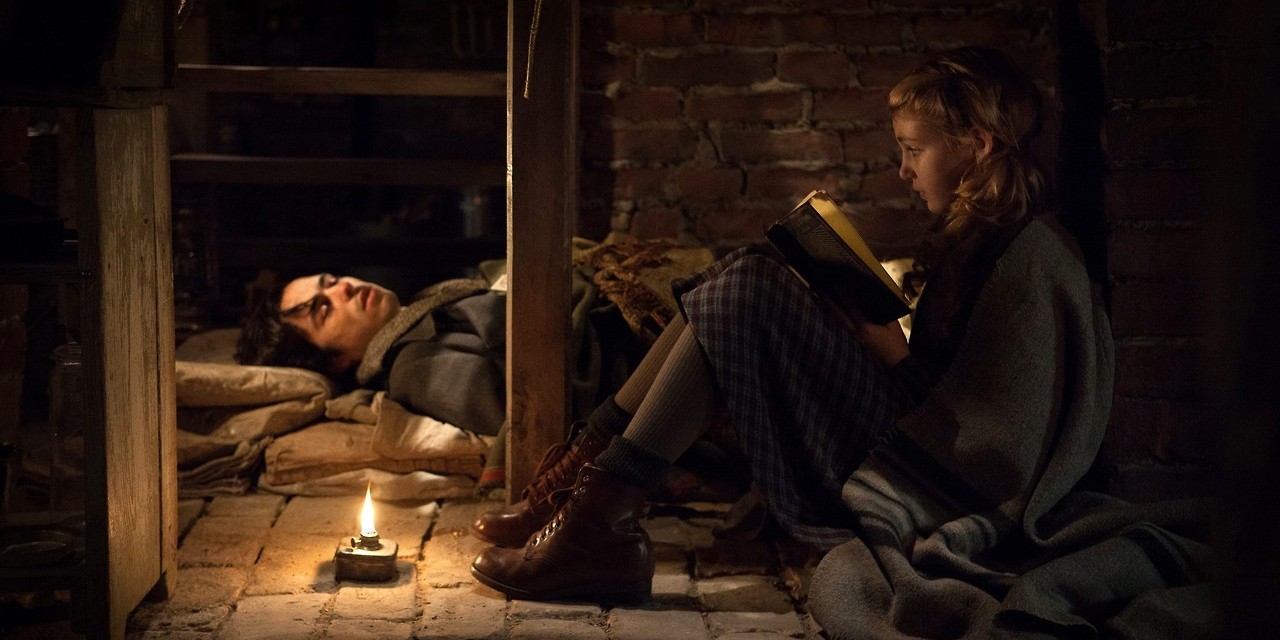Director Brian Percival’s dramatisation of Markus Zusak’s best selling 2006 novel of the same name is a remarkable example of how one or two critical errors at the end of a movie can do irreparable damage to any and all good work prior to it. The plot centres around a young ten year old girl, Liesel Meminger, given away by her mother to foster parents, the Hubermanns, living in Nazi controlled Germany. As war approaches and then begins, a young Jewish man in desperate need of shelter arrives and the family agrees to hide him in the basement, where he forms a close friendship with Liesel who shares with him her new found love of reading, fuelled by her regular theft of novels from the Mayor’s house and all instigated when she took, despite being illiterate, a book accidentally dropped by the grave of her brother, who passed away along the journey to the Hubermann’s town, perhaps in a desperate attempt to have something to remember him by.
Despite the grim setting, there is a kind of light and slightly airy feel to the film, but rather than paint too rosy a picture it should make it more palatable for younger viewers, which is good since it’s kind of aimed at them thematically with the focus on Liesel growing up against the backdrop of the war, and there’s still enough dark elements present to assuage the demands of history. The film is narrated intermittently by Death, voiced by Roger Allam, but unfortunately this kind of sees the Grim Reaper come over as a little too posh and sanctimonious, a tad incongruent with what one might imagine Death personified would sound like, meanwhile Geoffrey Rush and Emily Watson give sterling performances as the Hubermanns, but the lion’s share of credit has to go to young Canadian actress Sophie Nélisse who embodies Liesel perfectly.
One or two decisions toward the end, and a scene that really should have been reshot, sadly destroys much of the impact of the film. It isn’t really fair that this should be the case, but it is the feeling you walk out of the cinema with that mostly shapes your view of a film. It’s still quite good, but it was close to being something more.

